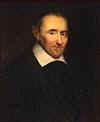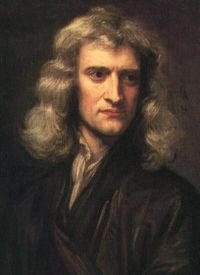The
Nature of Matter
Today's chemists continue the ancient task of working to
understand the nature and properties of matter and the use of this knowledge to
transform the raw materials of nature into useful products.1
Theoretical chemistry finds roots in the atomic ideas of the Greek
philosophers Leucippus
, (ca. 435 B.C.) and his student Democritus
(ca. 410 B.C.). Atomism was further developed in the next generation by Epicurus
(341-270 B.C.) and just prior to the Christian era by the Roman poet and
philosopher Lucretius
(ca. 99-55 BC) Synthetic chemistry began in pre-historical times with the
discovery of fire and the later more systematic work of the alchemists
of Babylon, Persia, and Egypt.
further developed in the next generation by Epicurus
(341-270 B.C.) and just prior to the Christian era by the Roman poet and
philosopher Lucretius
(ca. 99-55 BC) Synthetic chemistry began in pre-historical times with the
discovery of fire and the later more systematic work of the alchemists
of Babylon, Persia, and Egypt.
Democritus Greek
postage stamp
Early Greek atomists postulated that all matter consists of invisible
and indivisible atoms whose differing combinations give the properties
of the visible world - from sand and glaciers to living beings. These atoms were
said to exist in perpetual motion in empty space (the void) undergoing random
collisions to provide new objects which would further collide to form different
materials etc. The universe was made up of atoms and space alone - the gods,
souls, and all spiritual beings were also created by these chance encounters of
eternal atoms. The details of this description are obscure and vary in
ways that appear inconsistent today. We are not sure whether
Democritus meant that it was physically or logically
(conceptually) impossible to divide an atom. While it was impossible to
see atoms themselves in action, effects as the effect of water leaving clothes
hanging in the sun made sense in terms of atomic theory. For some atomists, the
soul or life of an animal was a special, very small, fast moving group
of atoms that operate within a living being to help it sense and act on its
environment. The atoms of the soul also breakup on death to form something different,
thus there would be no place for immortality of the soul.
Atomism gave rise to a mechanistic, deterministic system that has become more
accepted in modern times than in the early period. Explanations are bottom up,
not top down. That is, the movements and behavior of a compound of
atoms (e.g., a tree or an animal) are to be understood as the sum of the
individual movements of all the atoms comprising the "compound."
Egyptian masters of applied chemistry combined their work with the Greek
theory. Their chemical knowledge was linked with embalming the dead and
religious ritual. Their ibis-headed god of wisdom, Troth,
was seen as the source of all chemical knowledge. Greeks, impressed with
the knowledge of the Egyptians identified Thoth with their own Hermes
and accepted much of the mysticism. As a result the knowledge that had
been built up by chemical workers became shrouded in mystery and isolated in
mythical form. Progress was retarded since each alchemist was now isolated
from his fellows and could not learn from their successes and failures. It
was also easier for the charlatan to present himself as an expert. It is
instructive that the art of chemistry diminished in Roman times along side
the general decay of Greek learning. After 100 A.D. there was a rising
tendency to turn to ever-more. mystical interpretations of the earlier
writers.
Early atomism was largely replaced by the very different philosophies of
Plato and Aristotle. Aristotle offered a complex notion of physical
objects which makes little sense to the modern reader. He described the
"stuff" of nature along the following lines.
- Matter underlies and persists through substantial changes. A substance is
generated (or destroyed) by having matter take on (or lose) form.
- A house is created when bricks, boards, etc., are put together
according to a certain plan and arranged in a certain form. It is
destroyed when the bricks, boards, etc., lose that form.
- An animal is generated when matter (contributed by the mother)
combines with form (contributed by the father).
- This suggests that the primary substances of the Categories - the
individual plants and animals, are, when analyzed, actually compounds of form
and matter. And in the Metaphysics, Aristotle suggests
that a compound cannot be a substance.
- This may seem a strange move for Aristotle to be making. But the idea may
be this: a compound cannot be a basic ingredient.
- Cf. these compounds:
a brown horse
a scholar
Each of these is a compound of substance + attribute:
a brown horse = a
horse + brownness
a scholar = a human
+ education
Thus substances are a composite of form and matter
Aristotle adopted the ancient Greek view which held that Matter was
composed of four elements, Earth, Air, Fire and Water which were not composed
of atoms, but were continuous. Aristotle considered the existence of the void
required by atomic theories to violate physical principles. Change took place
not by the rearrangement of atoms to make new structures, but by
transformation of matter from what it was in potential to a new actuality.
Aristotle based his definitions on what he could see, not an invisible
speculative entity.
The Greek physician, Galen
(120-ca. 196 A.D). offered extensive discussions of the Greek atomists,
especially Epicurus, in his Aristotle commentaries. However,
Democritus' theory almost disappeared for almost 1500 years. The reasons
are complex and not clear. One factor was Christianity which after the
conversion of Roman Emperor Constantine in 312 A.D grew to be a majority in
the Western world and emerged victorious over both the philosophers and other
faiths.
Aristotle's ideas were were rediscovered by Western Europe about
1200, in Latin translations of Arabic translations from the Greek. Much
scholastic discussion followed among scholars including St.
Thomas Aquinas (1225-74) and Roger
Bacon (1214-92). Over time, the Catholic Church elevated
Aristotle's writings to the same level as Scripture and had continued the
association of atomic thinking with Godlessness. Blended with the
Christian world view by Thomas Aquinas this system dominated the western world
into the 17th Century. In a clerically controlled culture one would not
want to publically discuss atomic theory when it was so closely  identified
with atheism. Then too, there was no experimental way to "see"
atoms. Finally, there were scientific ideas that seemed inconsistent
with the notion of atoms - including the argument over the existence of a
vacuum.
identified
with atheism. Then too, there was no experimental way to "see"
atoms. Finally, there were scientific ideas that seemed inconsistent
with the notion of atoms - including the argument over the existence of a
vacuum.
St. Thomas Aquinis--
Wikepedia
Since the time of Galen, Lucretius' poem (with its message of atomism)
remained largely unknown. However around 1415 Italian humanist, Poggio
Bracciolini, located a copy of De Rerum Natura in an isolated
monastery and knowledge of atomism was quickly spread
to the emerging academic centers of western Europe
by monks on horseback . Following the invention of the
printing press at least four new editions of the poem were printed and widely
distributed. A further source of atomistic thought was Diogenes
Laertius' third-century work Lives of the Philosophers,
first printed in 1533. It included letters from Epicurus that contained
clear and concise statements on atomistic natural philosophy. Curiously,
Lucretius poem was first accepted because it was superb poetry. His
philosophy was still sub-Christian to all but a few. However the times
were a-changing, Aristotle's natural philosophy was receiving mounting
criticism and alternative views began to receive attention. Various
attempts were made to link atomism with early-modern Aristotelianism by
obscure scholars in Europe and the American colonies. Others,
including William
of Ockham (c. 1288 - c. 1348) worked to liberate the study of the
laws of nature from subjection to the totalitarian system of Tomistic
Aristotalism and the intellectual monopoly of Dominican culture.
Giordano
Bruno (1548 -1600) brought the atomists' view of
the world to the attention of Western natural philosophers. For Bruno:
"atomism became the key to understanding the universe and its
Creator...God becomes the source for all change in nature, as well as the
source of its existence."2 He viewed the atom in
three senses: physics, mathematics and theology, arguing
that atoms
were divinely endowed with a tendency toward organization. However, his
attempt to Christianize atomism did not
catch on in church circles and became part of a package of beliefs and
behavior which led to his condemnation as a heretic and death by burning at
the stake in Rome, in 1600.
By the turn of the 17th Century the once dominant world picture and
well-established religious landscape had been shaken by competing cosmologies
and new Christian churches not under the thumb of Rome. Aristotle
was under attack in many quarters and the winds of change were blowing strong.
One of the first groups of atomists in England was the amateur scientists
known as the Northumberland circle, led by Henry Percy (1585-1632 AD), the 9th
Earl of Northumberland.
Although they published little of value, their discussions helped to
disseminate atomistic ideas within the early scientific culture of England,
and may have been particularly influential to Francis
Bacon, who became an (uncertain) atomist around 1605, Thomas
Hobbs
(who changed his stance on atomism
late in his career), and Thomas
Hariot.
Hariot never published his atomistic views fearing, as he wrote his friend
Johannes
Kepler,
that he would be theologically suspect. Atomism had to pass the
religious test to be acceptable as a scientific doctrine. Across the
Channel a number of different atomistic theories were being discussed in
France.
A more famous advocate of
atomism in the early 16th century, Galileo
Galilei (1564-1642
AD) is known
more for his conflict with the Catholic church over cosmology. He first
considered atomism in Discourse on Floating Bodies (1612). In
The Assayer (1623), Galileo offered a more complete physical system
based on a corpuscular theory of matter, in which all phenomena—with the
exception of sound—are produced by “matter in motion”. Galileo found
Aristotelian science inadequate to explain his experiments, and utilized a
theory of atomism as a partial replacement, but he was never unequivocally
committed to it.
Despite
the success (and controversy) generated by 16th and early 17th century
atomists, atomism was not fully revived until the French natural philosophers Rene
Descartes (1596-1650 AD) and
Pierre Gassendi
(1592-1655
AD) published
their new systems based on corpuscular (Descartes) and atomistic (Gassendi)
theories. Descartes’ mechanical philosophy of corpuscularism had
much in common with atomism. Descartes thought everything physical in
the universe to be made of tiny “corpuscles” of matter
which is inert and has only mechanical properties.
Like some ancient atomists, Descartes claimed that sensations, such as taste
or temperature, are caused by the shape and size of tiny pieces of matter. The
main difference between atomism and corpuscularism
was the question of the existence of the atomist's void. For Descartes, there
could be no void, and all matter was constantly swirling to prevent a void as
corpuscles moved through other matter. Another key distinction between
Descartes’ corpuscularism
and classical atomism was Descartes’ notion of mind/body duality, which
allowed for an independent realm of existence for thought, soul, and most
importantly, God. Gassendi’s system was much closer to classical
atomism, but also free from atheistic undertones.
Gassendi, a French Catholic priest, was particularly intrigued by the
Greek atomists and set out to
“purify” atomism from its heretical and atheistic  trappings. His Christian
theology led him to reject specific features of Epicurean atomism, such as the
belief in the eternity of atoms and their infinite number. He also argued
that atoms aggregated to form other small bodies
trappings. His Christian
theology led him to reject specific features of Epicurean atomism, such as the
belief in the eternity of atoms and their infinite number. He also argued
that atoms aggregated to form other small bodies
which
he called molecules. Gassendi formulated
his atomistic conception of mechanical philosophy partly in response to
Descartes; he particularly opposed Descartes’ reductionist view that only
purely mechanical explanations of nature are valid. Gassendi’s
atomism was still suspect in Catholic countries where the Church continued to
exert power over intellectual life, such as post-Galilean Italy. In Catholic,
but more liberal France, Descartes
ruled the day.
Pierre Gassendi--Wikipedia
The
existence of a "void," what we now call a vacuum, was widely
disputed in
the seventeenth century. The air-pump was developed in part to test this
question, and in England, where air-pumps were widely used, atomism had more
influence than on the European continent. The final
form of atomism that came to be accepted by most English scientists after Robert
Boyle
(1627-1692 AD) was an amalgam of the two French systems.
In The Sceptical
Chymist (1661), Boyle demonstrated the deficiencies of Aristotelian science
based on his extensive chemistry experimentation. He appealed to chemists to
experiment rather than philosophize about nature and experimentally
demonstrated the fallacy of describing earth, fire, air, and water as
elements. He
proposed a corpuscular theory of matter that included the void to explain
diffusion and other gas properties.
However, he
could not decide whether these particles should be considered atoms,
in the strict sense of that term.
He
envisioned a created universe made up of three kinds of things -
particles of lifeless matter in motion, human souls and angels. God had
imposed order on dead matter at the time
of creation by predisposing it to move in certain ways;
further
relations between
material particles are mechanically based
of this initial predisposition.
But the rational souls of men and angels are immaterial and spiritual
in nature and are thus exempted from the divine dispensation regarding
material objects.
This
exclusion allowed Boyle to avoid the heretical implications attaching
historically to any atomistic theory of the universe.
 Robert
Boyle
Robert
Boyle
--Wikipedia
Boyle viewed the mechanical (clocklike) universe as
designed by a God of extraordinary wisdom and providence who did not need
subsequent adjustments to keep it going. However, God was not bound by
the laws of nature and could intervene in the ordered universe as he wished.
For Boyle, the study of nature provides convincing evidence of God's existence
and attributes. Boyle
with other British Christians of his day were concerned with what they
recognized the atheistic leanings of their day - a mixture of beliefs,
attitudes, and behaviors that they saw as turning their nation away from God.3
Boyle left a sum of money on his death to be used to
support an annual lecture series that would promoted natural
theology. Later, critics of the Boyle lectures
argued that advances in science of their day were reducing the apparent need
for divine intervention to fill in the gaps in our understanding. In the
extreme case, this would lead to a mechanical
universe presided over by a divine engineer, who having made it left it to run
itself. Instead of advancing the cause of Christianity it seemed to force God
out altogether.
Isaac
Newton (1642 - 1747) built on the corpuscular theory with the
mechanical philosophy of Descartes and added a new focus on forces that
could be mathematically described. He saw the corpuscles as units of
mass and introduced the laws of mechanics to explain their
motion. Later in life he would join with Gassendi and Boyle in opposing the clockwork system of Descartes.
Newton introduced the notion of active principles as God's means of
bringing activity to the world and exercising providence. Newton argued
that it took an active God to create and maintain a universe that demonstrated
his divine handiwork.
providence. Newton argued
that it took an active God to create and maintain a universe that demonstrated
his divine handiwork.
Newton sought understanding of the nature and structure of all matter,
formed from the "solid, massy, hard, impenetrable, movable
particles" that he believed God had created.
"All these things being considered, it
seems probable to me, that God in the beginning formed Matter in solid, massy,
hard, impenetrable, moveable particles, of such sizes and figures, and with
such other properties, and in such proportion to space, as most conduced to
the end for which he formed them; and that these primitive particles, being
solids, are incomparably harder than any porous bodies compounded of them;
even so very hard, as never to wear or break in pieces; no ordinary power
being able to divide what God himself made one in the first creation. While
the particles continue entire, they may compose bodies of one and the same
nature and texture in all ages: But should they wear away, or break in pieces,
the nature of things depending on them would be changed. Water and earth,
composed of old worn particles and fragments of particles would not be of the
same nature and texture now, with water and earth composed of entire particles
in the beginning. And therefore, that nature may be lasting, the changes of
corporeal things are to be placed only in the various separations and new
associations and motions of these permanent particles; compound bodies being
apt to break, not in the midst of solid particles, but where those particles
are laid together, and only touch in a few points."
-----Isaac Newton, The Optics, query. 31
Although a belief in atoms (corpuscles) had become
almost universal by the time of Newton there was not "strong"
experimental evidence for this view until the work of English School
Teacher John Dalton
in the first decade of the 19th Century.
Dalton's
theory was different in that it had the weight of careful chemical
measurements behind it. It was more than a philosophical statement that there
are atoms because there must be atoms.
Organic chemistry flourished in the 19th century, many new elements
discovered, and mathematical relationship developed via quantitative
measurement that the French chemist Anton Lavoisier pioneered. However,
the physicists were not yet convinced that atoms were real. As late as 1860
Physicists met in Karlsruhe, Germany to debate the atomic hypothesis.
Curiously, the solution of the problem found roots in the late 1820s
observations of British Museum curator, botanist Robert Brown.
Testing a new microscope he examined a series of water solutions containing
fine suspended particles. He noticed that they moved in a ceaseless, random,
zig-zag motion. Others had seen the same effect but Brown was able to
establish that it occurred with any small particle and was not the result of
influences from outside the solution such as vibration or heating or magnetism
- or some internal vital spirit a favorite of his peers.. A
very cautious man, he offered no explanation.
His work attracted little attention in the period up to his death in
1858. In the 1880s two French Jesuit priests postulated that the zig-zag
motions of the small particles were caused by rapidly moving smaller molecules
made from atoms. At the same time physicists were beginning to
relate the temperature of a diatomic gas to the motion of the gas molecules
and by extension that the temperature of anything was related to the motions
of its constituent atoms. Elaborate mathematical treatments were unable
to handle the models that were proposed. Austrian physicists
Ludwig Boltzman was the first physicist to link the visual nature of Brownian
movement with the atomic nature of matter and the randomness inherent in
atomic motion. Boltzmann had the skills to develop the mathematics of
the effect but did not bother to follow it up.
It fell to a 26 year old Swiss patent clerk Albert Einstein to take on the
task and publish the answer in one of his four notable papers in 1905.
Einstein provided the first quantitative treatment that related the motion of
small particles in a liquid to atomic motion. Curiously, he did not learn
about Brownian movement until he was writing his  work
for publication. In 1908 French physicist Jean Perrin made exacting
measurements of Brownian motion. His results confirmed Einstein's
theoretical work and even the most die-hard skeptic became a believer.
work
for publication. In 1908 French physicist Jean Perrin made exacting
measurements of Brownian motion. His results confirmed Einstein's
theoretical work and even the most die-hard skeptic became a believer.
Visualization of atoms became a reality with
the development of the
atomic force
microscope in the late 20th Century. Ultimately,
those who resisted the particle concepts had, nevertheless, the right idea. Light and matter,
it turned out, are both particle and wave at the same time. This paradox is at
least partially resolved within the framework of Quantum Field
Theories.
Stadium Corral Iron on Copper IBM.
Scientists
at IBM used the tip of a scanning probe microscope to to form a ring
In the end, Atomism (without philosophy) won the day because it was
necessary for a coherent scientific view of the world and (for Christians) did
not conflict with the biblical doctrine of creation that displaced the
speculations of the Greek philosophers. The problem that the phenomena
of the Eucharist could not be reconciled with Eucharistic transubstantiation
seems resolved by application of a "miracle" appears to provide
an acceptable accommodation for the faithful.
"The
science of alchymy I like very well, and indeed, 'tis the philosophy of the
ancients. I like it not only for the profits it brings in melting metals, in
decocting, preparing, extracting and distilling herbs, roots; I like it also
for the sake of the allegory and secret signification, which is exceedingly
fine, touching the resurrection of the dead at the last day." --
Martin
Luther's Table talk
A
2001 view of the atom
References
1
The
"Better Things for Better Living" advertising slogan from E. I. Du
Pont.
2 Kargon, p. 133.
3 Michael
Hunter, "Science and Heterodoxy", Reapprasials, Lindberg and Westman
eds. 437 ff
Sources: Lindberg and Numbers, eds., When Science and
Christianity Meet, University of Chicago Press, 2003. Brooke and
Cantor , eds. Reconstructing Nature, T & T Clark, 1998.
Brooke, Science and Religion, Cambridge University Press, 1991.
Redondi, Galileo Heretic, Princeton University Press, 1987. Lindberg
and Westman, Reappraisals of the Scientific Revolution, Cambridge
University Press, 1991. Lindley,
Uncertainty: Einstein, Heisenberg, Bohr, and the Struggle for The Soul of
Science, New York: Doubleday, 2007. Kargon,
"Atomism
in the Seventeenth Century," Dictionary
of the History of Ideas.
Further
Reading
Allen,
R. E., ed. Greek Philosophy: Thales to
Aristotle, New York: The Free Press, 1991.
Contains many of the the surviving original fragments of the Presocratics,
including Democritus.
|
Clericuzio, Antotino and A. Clericuzio,
A., Elements,
Principles and Corpuscles: A Study of Atomism and Chemistry in the
Seventeenth Century (International
Archives of the History of Ideas / Archives internationales
d'histoire des idées)
Springer; 2006)
|
Fisher, Saul, Pierre Gassendi's Philosophy And Science: Atomism for
Empiricists (Brill's Studies in Intellectual History, V. 131) (Brill's
Studies in Intellectual History) (Hardcover) Brill Academic
Publishers, 2005
Lucretius and M. Esolen, Anthony M., On
the Nature of Things: De rerum natura
The Johns Hopkins University Press (1995) (Paperback)
McKirahan,
Richard D. Philosophy
Before Socrates. Indianapolis: Hackett, 1994. Chap.
16.
J.
W. Haas, Jr., June 2007.
Return
 further developed in the next generation by Epicurus
(341-270 B.C.) and just prior to the Christian era by the Roman poet and
philosopher Lucretius
(ca. 99-55 BC) Synthetic chemistry began in pre-historical times with the
discovery of fire and the later more systematic work of the alchemists
of Babylon, Persia, and Egypt.
further developed in the next generation by Epicurus
(341-270 B.C.) and just prior to the Christian era by the Roman poet and
philosopher Lucretius
(ca. 99-55 BC) Synthetic chemistry began in pre-historical times with the
discovery of fire and the later more systematic work of the alchemists
of Babylon, Persia, and Egypt. monist
and materialistic description of an eternal reality without reference to divine
intervention. Epicurus describe a view of the
monist
and materialistic description of an eternal reality without reference to divine
intervention. Epicurus describe a view of the 
 trappings. His Christian
theology led him to reject specific features of Epicurean atomism, such as the
belief in the eternity of atoms and their infinite number. He also argued
that atoms aggregated to form other small bodies
trappings. His Christian
theology led him to reject specific features of Epicurean atomism, such as the
belief in the eternity of atoms and their infinite number. He also argued
that atoms aggregated to form other small bodies
 providence. Newton argued
that it took an active God to create and maintain a universe that demonstrated
his divine handiwork.
providence. Newton argued
that it took an active God to create and maintain a universe that demonstrated
his divine handiwork.